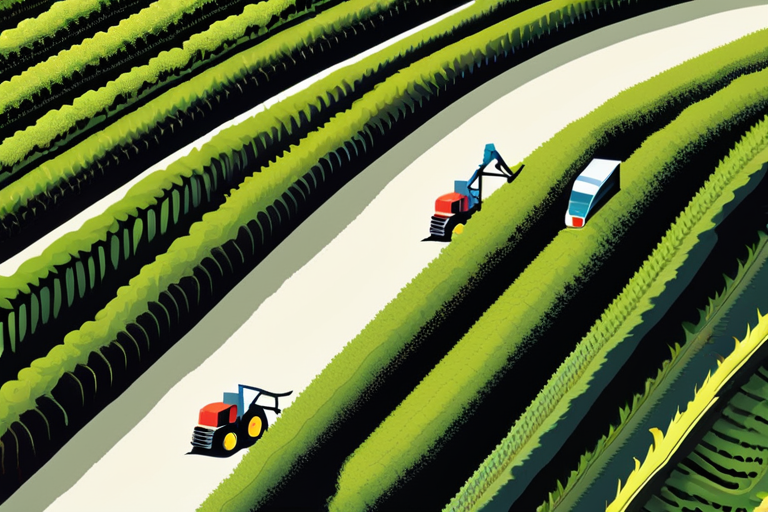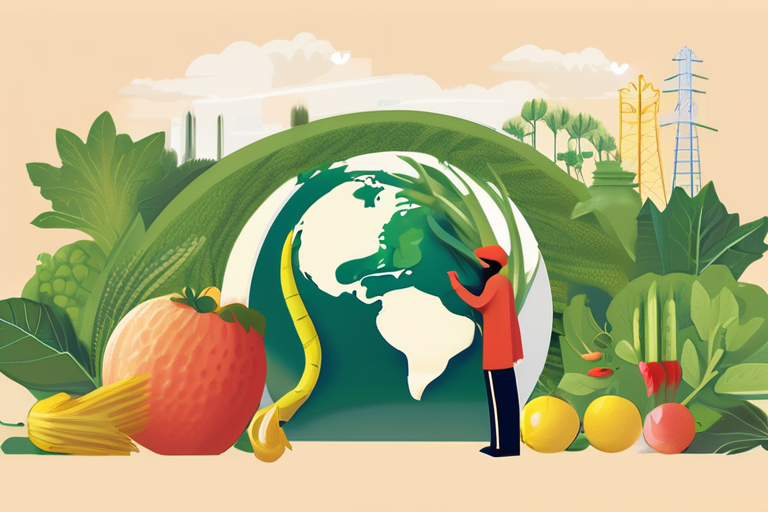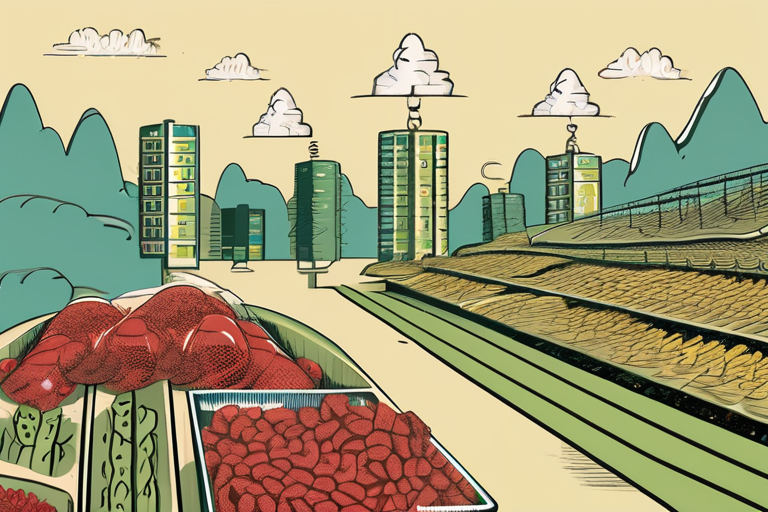Agriculture's Hidden Climate Footprint: $1 Trillion Industry Remains Major Threat


Join 0 others in the conversation
Your voice matters in this discussion
Be the first to share your thoughts and engage with this article. Your perspective matters!
Discover articles from our community

 Hoppi
Hoppi

 Hoppi
Hoppi

 Hoppi
Hoppi

 Hoppi
Hoppi

 Hoppi
Hoppi

 Hoppi
Hoppi

Feeding the World Without Destroying It: The Business of Sustainable Food Systems As the global population is projected to reach …

Hoppi

Feeding the World Without Destroying It: The Financial Imperative The world's population is projected to reach 10 billion by 2050, …

Hoppi

Scaling Carbon Capture: Can We Meet the Challenge? In a small village nestled in the rolling hills of rural Kenya, …

Hoppi

Environmental Damage Threatens European Way of Life, Report Warns A recent report by the European Environment Agency (EEA) has sounded …

Hoppi

Online Attacks Threaten Major Climate-Friendly Diet Report BERLIN, GERMANY - In a shocking turn of events, the EAT-Lancet Commission's major …

Hoppi

The Climate Movement's Biggest Weakness: A $2 Trillion Food System A new report by the EAT-Lancet Commission reveals that even …

Hoppi